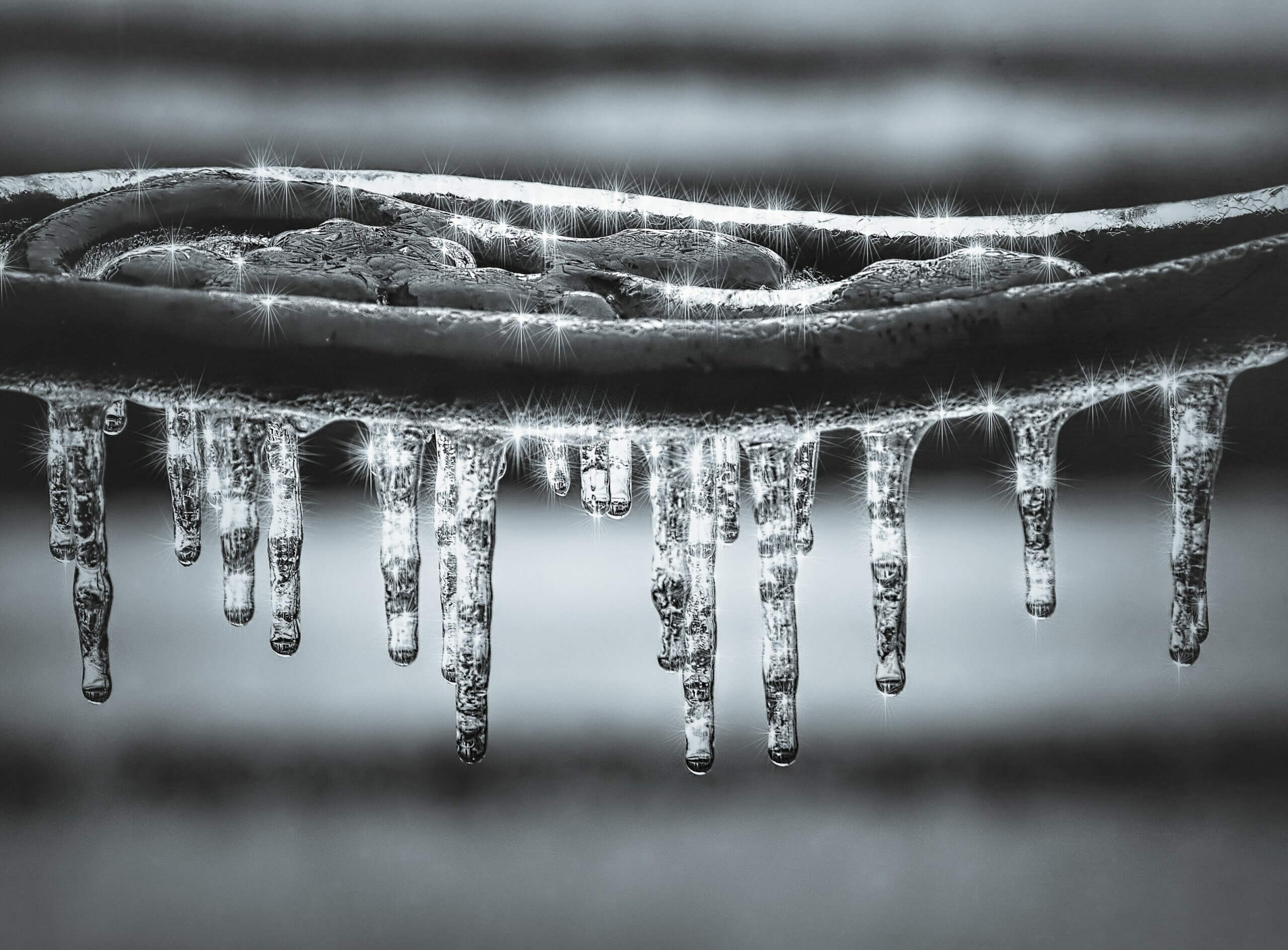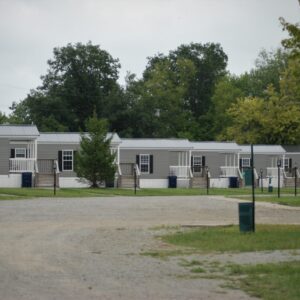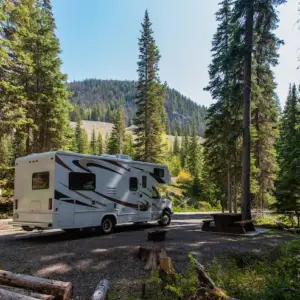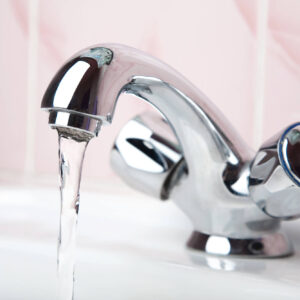When it comes to camping in cold weather, one of the biggest concerns is the risk of pipes freezing in your camper. Knowing at what temperature pipes freeze in a camper is crucial to prevent costly damage and ensure a comfortable and safe camping experience.
Understanding temperature and freezing is key to preventing damage to your camper’s pipes. While the freezing point of water is 0°C or 32°F, the actual temperature at which pipes will freeze in a camper can vary depending on factors such as the type of pipes, insulation, and exposure to wind and cold.
Winter camping can be challenging, but with the right preparation, you can avoid damage to your camper’s pipes and enjoy a comfortable and safe camping experience. By taking steps such as winterising your camper, managing water carefully, and paying attention to specific areas of concern, you can prevent freezing and ensure a successful winter camping trip.
Key Takeaways
- Understanding temperature and freezing is key to preventing damage to your camper’s pipes
- Winterising your camper and managing water carefully are crucial to preventing freezing
- By taking the right steps, you can enjoy a comfortable and safe winter camping experience
Understanding Temperature and Freezing
When it comes to RV camping, understanding temperature and freezing is crucial to avoid any disasters. Pipes can freeze when the temperature drops below freezing, which is 32 degrees Fahrenheit or 0 degrees Celsius. However, it’s not just the external temperature that matters – the internal temperature of the camper also plays a significant role.
It’s important to note that pipes can freeze at temperatures below 32 degrees Fahrenheit, but it will take a sustained period of time for this to happen. When temperatures drop below 20 degrees Fahrenheit, it usually takes six hours for insulated pipes to freeze, while temperatures between 20 and 32 degrees Fahrenheit are likely to freeze pipes after about 12 hours.
In sub-zero temperatures, pipes can freeze in just a matter of hours, especially if the RV is not heated or insulated properly. It’s essential to take precautions once the temperature drops below freezing to avoid any disastrous situations.
When camping in cold weather, it’s crucial to keep the camper’s internal temperature above freezing to prevent pipes from freezing. It’s recommended to keep the internal temperature at or above 55 degrees Fahrenheit to keep the pipes from freezing.
In conclusion, understanding temperature and freezing is crucial when RV camping. Pipes can freeze at temperatures below 32 degrees Fahrenheit, and it’s essential to keep the internal temperature of the camper above freezing to avoid any disasters.
The Impact of Winter on Campers
Winter can be a challenging time for campers, especially those who enjoy camping in their RVs. The cold weather and harsh conditions can cause significant damage to the camper, especially if it is not winterized correctly. Here are some of the ways that winter can impact campers:
Damage
Winter weather can cause significant damage to the camper, especially if it’s not winterized correctly. Frozen pipes and tanks can burst, causing water damage to the camper’s interior. Additionally, the cold weather can cause damage to the camper’s exterior, such as cracking the roof or windows. It’s essential to take precautions to protect the camper from the harsh winter weather.
Winterizing
Winterizing the camper is essential to protect it from the harsh winter weather. It involves preparing the camper’s plumbing system to prevent the pipes and tanks from freezing. Winterizing also involves protecting the camper’s exterior, such as covering the tires and sealing any cracks or openings. It’s crucial to winterize the camper correctly to avoid any damage during the winter months.
Winter Camping
Winter camping can be a fun and exciting experience, but it requires special preparation and equipment. Campers must be prepared for the cold weather and wind chill, which can make the temperature feel much colder. It’s important to have the right clothing, gear, and equipment to stay warm and comfortable during winter camping.
Temperature
The temperature at which pipes freeze in a camper varies depending on several factors, such as wind chill, the camper’s insulation, and the temperature outside. Generally, if the temperature drops below 32 degrees Fahrenheit for more than 24 hours, the pipes and tanks are at risk of freezing. However, if the temperature drops drastically to a temperature that’s a lot below the freezing temperature, the pipes will freeze much quicker.
In conclusion, winter can have a significant impact on campers, especially those who enjoy camping in their RVs. It’s essential to take precautions to protect the camper from the harsh winter weather, such as winterizing it correctly and having the right gear and equipment for winter camping. By being prepared, campers can enjoy the winter months and all the beauty they have to offer.
Preventing Damage to Your Camper’s Pipes
As a camper, it is important to take preventive measures to protect your plumbing system from freezing and causing extensive damage. Frozen pipes can be a nightmare, leading to costly repairs and inconvenience. Here are some tips to prevent your pipes from freezing:
Insulate Your Pipes
Insulating your pipes is one of the most effective ways to prevent freezing. You can use foam insulation sleeves or wrap your pipes with heat tape or heat cables. Make sure to insulate all pipes, including those in unheated areas such as the underbelly of your camper.
Keep Your Camper Warm
Keeping your camper warm is essential to prevent freezing. Make sure to maintain a temperature above freezing, even when you’re not using the camper. You can use a furnace, space heater, or heating pad to keep your camper warm.
Use Antifreeze
Using antifreeze is another preventive measure to protect your pipes. You can add antifreeze to your plumbing system to prevent freezing. Make sure to use antifreeze that is safe for your plumbing system.
Proper Ventilation
Proper ventilation is crucial to prevent freezing. Make sure to keep your camper well-ventilated to prevent moisture buildup, which can lead to freezing.
Take Precautions
Taking precautions is important to prevent freezing. Make sure to drain your tanks and pipes before storing your camper for the winter. You can also use skirting to protect your camper from cold winds.
Regular Maintenance
Regular maintenance is essential to keep your plumbing system in good condition. Make sure to check your pipes and tanks regularly for any signs of damage or leaks.
By taking these preventive measures, you can protect your camper’s plumbing system from freezing and causing extensive damage. Insulating your pipes, keeping your camper warm, using antifreeze, proper ventilation, taking precautions, and regular maintenance are key to prevent freezing.
Specific Areas of Concern in a Camper
When it comes to preventing pipes from freezing in a camper, there are certain areas that require special attention. Here are some specific areas of concern that you should keep in mind:
Underbelly and Enclosures
The underbelly of your camper is a crucial area to focus on when trying to prevent pipes from freezing. If your camper has an enclosed underbelly, make sure that it is properly sealed and insulated. This will help keep the area warm and protect the pipes from freezing.
Doors and Windows
Doors and windows are common areas where cold air can seep into your camper, causing the temperature to drop. Make sure that all doors and windows are properly sealed and weatherproofed to prevent this from happening.
Water Systems
Your camper’s water systems are also an area of concern when it comes to preventing pipes from freezing. Make sure that all fittings and connections are tight and secure, and that there are no leaks in the system. You may also want to consider using a heated hose or heat tape to keep the water flowing in colder temperatures.
Heating and Climate Control
Proper heating and climate control are essential when trying to prevent pipes from freezing in a camper. Make sure that your camper’s heating system is functioning properly, and consider using a space heater or portable heater to provide additional warmth if needed.
Holding Tanks
Holding tanks are another area of concern when it comes to preventing pipes from freezing. Make sure that your camper’s holding tanks are properly insulated and heated, and consider using a tank heater or heat tape to keep them from freezing.
By paying close attention to these specific areas of concern, you can help prevent pipes from freezing in your camper and avoid costly damage.
Water Management in Cold Conditions
When camping in cold conditions, managing water becomes crucial to prevent pipes from freezing. Frozen pipes can lead to costly repairs and even damage to your camper. Here are some tips for managing water in cold conditions:
Keep Water Flowing
Running water through your RV water lines can prevent them from freezing. Even a small amount of water running through the pipes can help keep them from freezing. You can also use a space heater to warm up the area around the pipes.
Insulate Water Lines
Insulating your water lines can help keep them from freezing. You can use foam insulation or heat tape to insulate the pipes. Pay special attention to any exposed pipes that are outside the RV.
Keep Water Heater Running
Keeping your water heater running can also help prevent pipes from freezing. Set the temperature to at least 10 degrees Celsius and keep the water flowing. This will help keep the water heater from freezing and also prevent the water in the pipes from freezing.
Monitor Water Pressure
Keep an eye on the water pressure in your RV. If the pressure drops, it could be a sign that the pipes are starting to freeze. If this happens, turn off the water and use a space heater to warm up the area around the pipes.
Use Antifreeze
Using antifreeze can also help prevent pipes from freezing. Be sure to use RV-specific antifreeze and follow the manufacturer’s instructions carefully.
By following these tips, you can help prevent your RV water lines from freezing in cold conditions. Remember to keep water flowing, insulate your water lines, keep your water heater running, monitor water pressure, and use antifreeze when necessary.
Winterising Tips and Techniques
Winterising your camper is an essential step to prevent frozen pipes during the colder months. Here are some tips and techniques to help you winterise your camper and prevent any damage caused by frozen pipes.
Drain and Insulate Your Water System
The first step to winterising your camper is to drain your water system completely. This includes draining your freshwater tank, hot water tank, and all the pipes. Once you have drained the water system, you should insulate all the pipes with foam insulation to prevent them from freezing.
Add Antifreeze to Your Water System
After draining and insulating your water system, you should add antifreeze to your water system. Antifreeze will prevent any remaining water from freezing and causing damage to your pipes. Make sure to use RV-specific antifreeze as regular antifreeze can be harmful to your health.
Protect Your Exterior Water Connection
Your exterior water connection is vulnerable to freezing, so it’s important to protect it. You can purchase a heated hose or wrap your hose with heat tape to prevent it from freezing. You should also insulate your water connection with foam insulation.
Keep Your Camper Warm
Keeping your camper warm is essential to prevent frozen pipes. You should keep the temperature inside your camper above freezing at all times. You can use a space heater or a furnace to keep your camper warm. Make sure to monitor your propane levels if you’re using a furnace.
Additional Tips
Here are some additional tips to help you winterise your camper and prevent frozen pipes:
- Remove all water from your toilet and add antifreeze to the bowl.
- Open all faucets and let the antifreeze flow through the system.
- Check your camper for any drafts and seal them with weatherstripping.
- Remove your batteries and store them in a warm place.
- Cover your camper with a tarp or RV cover to protect it from the elements.
By following these winterising tips and techniques, you can prevent frozen pipes and protect your camper during the colder months.
Understanding the Impact of Climate
When it comes to preventing pipes from freezing in a camper, understanding the impact of climate is crucial. Cold weather, freezing temperatures, and sub-zero temperatures can cause significant damage to your RV’s plumbing system. However, weatherproofing and climate control can help mitigate these risks.
The climate you are camping in will have a significant impact on the temperature your pipes will be exposed to. For example, if you are camping in a region with a milder climate, you may not need to worry too much about your pipes freezing. However, if you are camping in a colder climate, you will need to take extra precautions to protect your pipes.
Weatherproofing your RV can help prevent cold air from entering your camper and causing your pipes to freeze. This can be done by sealing any gaps or cracks in your RV’s exterior, installing insulation, and using weather stripping around doors and windows.
Climate control is another effective way to prevent your pipes from freezing. Keeping your RV’s interior temperature above freezing will help keep your pipes warm and prevent them from freezing. You can achieve this by using a space heater or keeping your RV’s furnace running.
It’s important to note that climate control can be expensive, especially if you are camping in a colder climate for an extended period. However, the cost of repairing a frozen or burst pipe can be much higher, so investing in climate control is often worth it.
In summary, understanding the impact of climate is crucial when it comes to preventing your pipes from freezing in a camper. Weatherproofing and climate control can help mitigate the risks associated with cold weather and freezing temperatures, but it’s important to take extra precautions when camping in colder climates.




